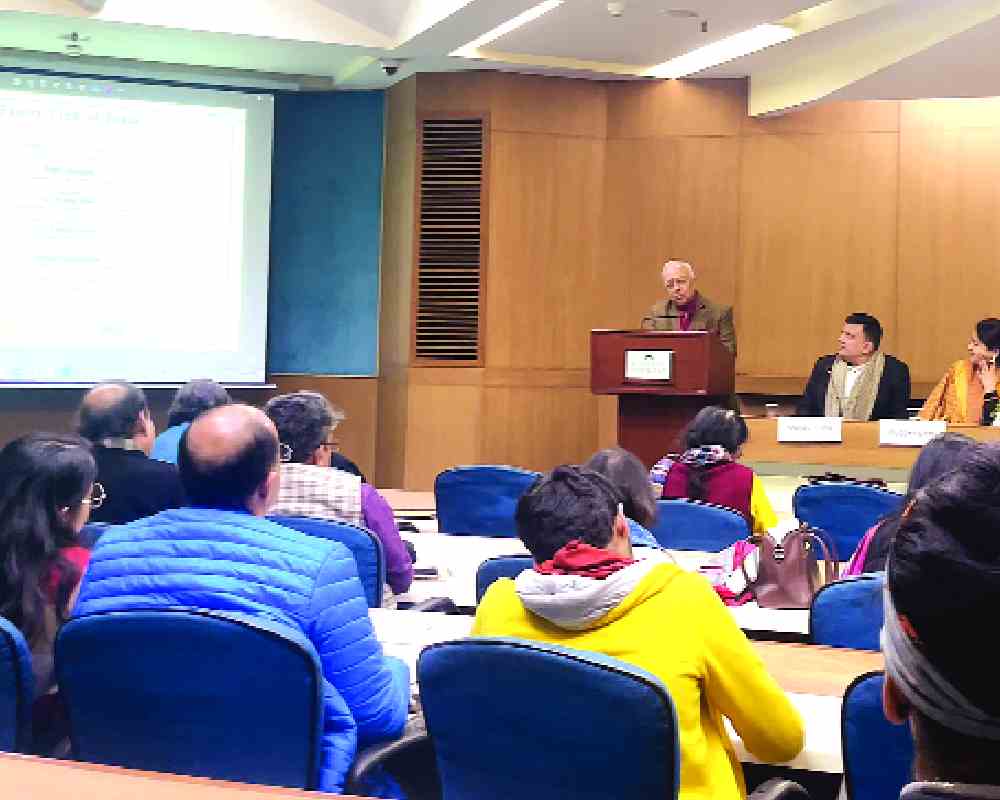“Poetry is the lifeblood of our shared humanity, flowing through the veins of culture and society, stirring the depths of our souls with its timeless resonance.” — Rumi
Poetry In a world often defined by its frenetic pace and digital distractions, the timeless art of poetry stands as a beacon of introspection, empathy and connection. As Rumi, the celebrated 13th-century Persian poet, eloquently reminds us, poetry serves as the lifeblood of our shared humanity, coursing through the annals of history and resonating across cultures and civilisations. In the heart of India's rich literary tapestry, the Poetry Club of India emerges as a champion of this venerable tradition, revitalising and nurturing the art form for a new generation. With a commitment to fostering cultural appreciation and cultivating talent, the Poetry Club of India stands as a testament to the enduring power of poetry to inspire, enlighten and unite. Founded in 1994 by eminent poet Manohar Bandyopadhyay and joined by leading figures such as Keshav Malik and Rakshit Puri, the Poetry Club of India has served as a lighthouse of literary excellence for nearly three decades. Originally conceived as a serious forum for multilingual poetry, the Club has evolved under the stewardship of Manav Gupta, who have recognised the importance of adapting to changing times while preserving the essence of poetic expression. After the pause button pushed by the pandemic, Manav Gupta's leadership has revitalised the club, elevating Poetry Readings to new heights of quantity and quality. A hallmark of Gupta's initiative is honouring veteran poets whose contributions have enriched the art form over the years. By recognising luminaries such as Keshav Malik and Manohar Bandyopadhyay, Gupta pays homage to the enduring legacy of poetry while nurturing a new generation of voices. At the recent Poetry Readings session at the India Habitat Centre, Delhi, distinguished guests including Dr Yogendra Narain, a former Defence Secretary, and Mugdha Sinha, Joint Secretary of the Ministry of Culture, shared the stage with an array of poets. From seasoned wordsmiths to fresh voices from college poetry societies, the event epitomised Gupta's inclusive vision, bringing together disparate segments of society in a celebration of literary excellence. As Manohar Bandyopadhyay aptly observes, the essence of poetry transcends the printed page, resonating deeply when experienced aloud. Gupta's curated platform serves as a conduit for this experiential journey, weaving together myriad emotions and perspectives into a rich tapestry of artistic expression. At its core, the Poetry Club of India embodies the belief that poetry is not merely a form of entertainment but a cornerstone of cultural identity and civic engagement. In a society marked by rapid globalisation and technological advancement, poetry serves as a timeless reminder of our shared humanity, transcending barriers of language, nationality and ideology. Through poetry, we gain insights into the human experience, fostering empathy, understanding and connection.
It challenges us to pause, to contemplate, and to delve into the depths of our own emotions and experiences. In doing so, poetry cultivates mindfulness and self-awareness, fostering personal growth and resilience in the face of adversity. Through the lens of poetry, we confront pressing issues, grapple with complex emotions and explore alternative perspectives. In this way, poetry becomes a catalyst for dialogue and social change, inspiring us to confront injustice, challenge conventions and strive for a more equitable and compassionate society. Central to the Poetry Club of India's mission is the cultivation of good poets and the promotion of poetry sessions throughout the country. By providing a platform for established and emerging poets to share their work, the Club nurtures talent, fosters creativity and a sense of community among poetry enthusiasts. The revival of poetry through organisations like the Poetry Club of India is not merely a cultural endeavour but a civic imperative. In an increasingly fragmented and polarised world, poetry has the power to bridge divides, inspire empathy and positive change. By embracing poetry as a vital component of our cultural heritage, we reaffirm our commitment to the values of compassion, tolerance and understanding that define us as a civilised society. In these tumultuous times, when reality often feels stranger than fiction, the need for poetic justice becomes even more pronounced. As we grapple with uncertainty and upheaval, we cling to the belief that there is meaning and purpose behind the chaos — that there is a greater cosmic justice at play. Poetic justice becomes a source of comfort and reassurance, reminding us that there is still beauty and fairness to be found in the world, even amid its surreal twists and turns. Of course, to appreciate poetic justice, one needs to understand poetry!


























